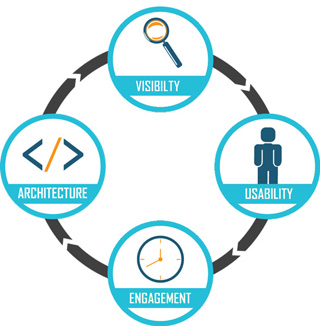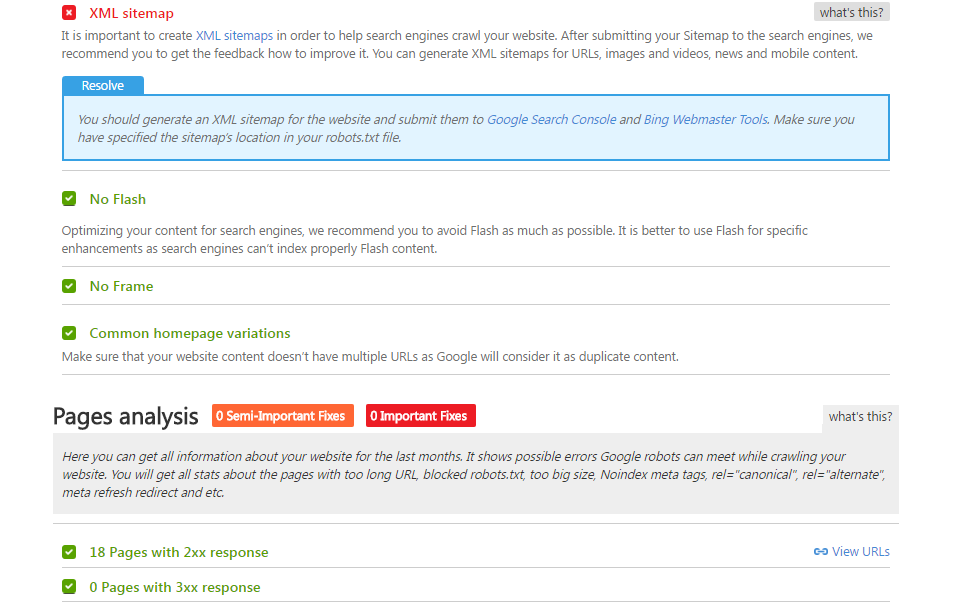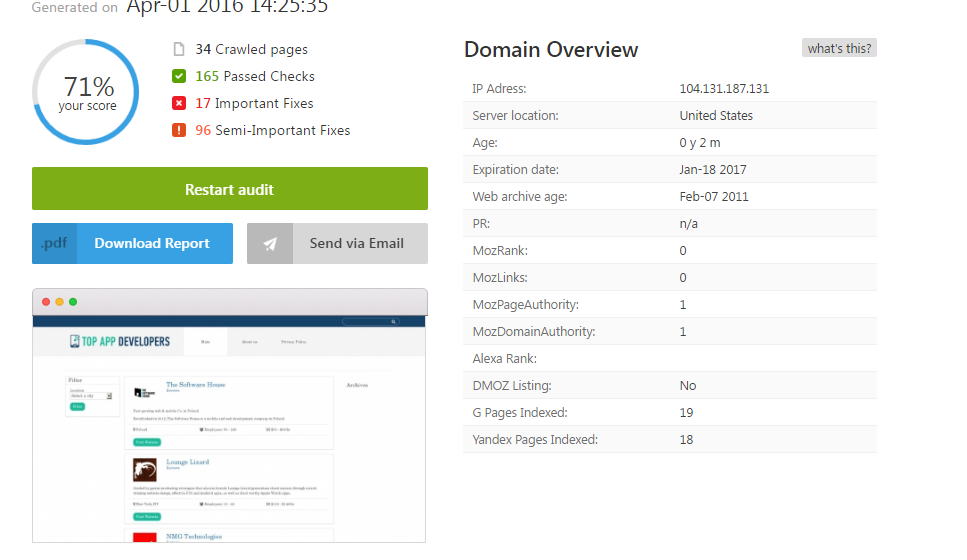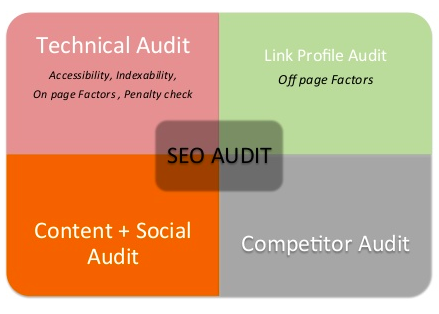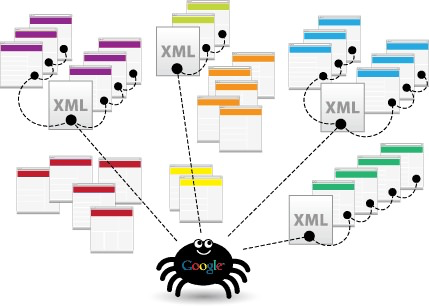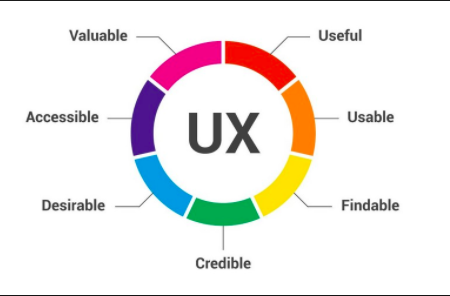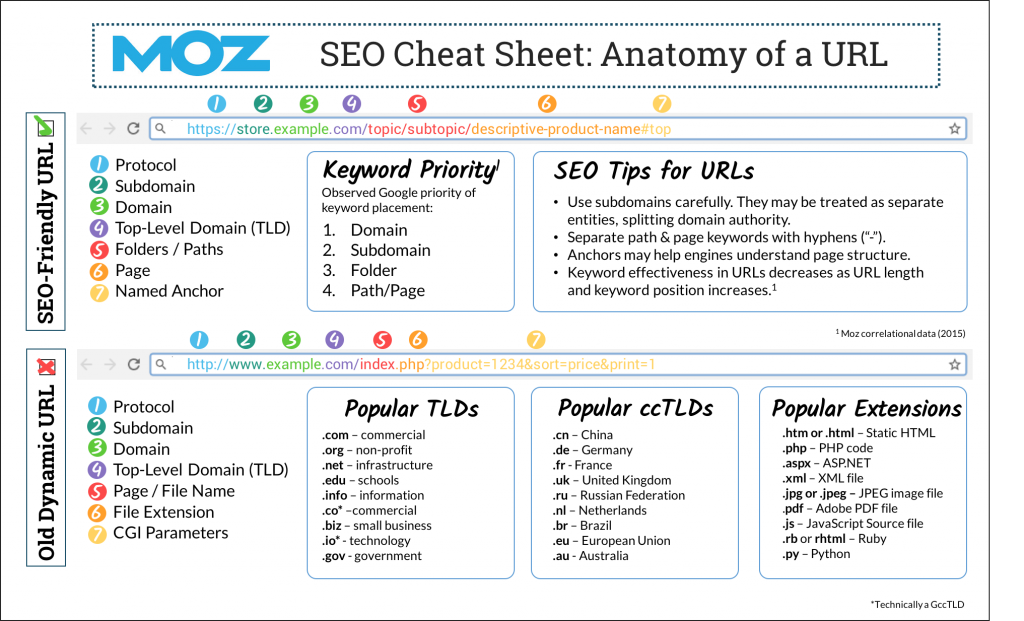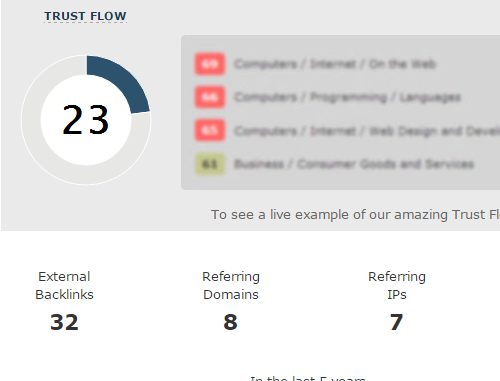The Complete Guide to Perform an SEO Audit
Ever given thought to what you can do to increase your site’s search engine visibility? If yes, a website audit is sure to go a long way towards achieving your goals. As a business, it’s critical to run website audits on a regular basis especially if you want to stay on the good side of Google — you wouldn’t want to get penalized for things you can handle, right?
That said, it’s in your best interest to conduct a yearly or semi-annual audit to keep your digital strategy in good shape. Now, the big question is, “what is a site audit?”
Well, you don’t have to rack your brains here — this post will explore every single bit of information you need to know. Sounds good? Let’s get to it!
What Is A Website Audit?
A site audit is a complete analysis of every single factor that determines your website’s visibility in search engines. It’s basically when you engage the services of a professional to examine your website with tools thus giving you a better idea of where you have problems that need fixing. In other words, a detailed website audit will give you a better understanding as to why your website is not performing the way it should. For the most part, a normal website should serve its purpose of attracting visitors, keeping them hooked and hopefully convert them into paying customers.
How To Prepare For An SEO Audit?
Now that you’re set to run a site audit, we’ll recommend you take your time to plan things out before diving into the analysis. Essentially, a deep and complete audit requires a little planning to ensure that everything goes as smoothly as planned.
In the meantime, you’ll want to do your research and find some of the most effective website audit tools to make the planning stage a whole lot easier for you. The good news is that the web is saturated with different site audit tools, most of which can help you figure out problem areas that affect your site’s performance. One of the best tools to check out is SE Ranking Website Audit — it can help identify website errors at a glance thus giving the professionals every information they need to work on your site keep it in tiptop shape.
Create A Feasible Audit Strategy
At this point, you’ll want to focus your attention on developing a feasible strategy that’ll help you get a better idea of your goals. The thing is, a site audit can improve a plethora of issues and push your site to reach new heights. For the most part, a thorough audit can help you:
- Analyze your keywords;
- Gain insights into your competition;
- Solve technical issues with your website
At once, you can see that a website audit goes way beyond improving site rankings — it gives you a clearer picture of what’s good as well as where you need to make a few fixes. With that in mind, here are the four primary things an SEO auditor should perform.
-
Technical Analysis
For starters, you’ll want to check if your site is working correctly and ensure that everything is in tip-top shape. The concept is pretty simple — it’s never a good idea to build your website on a bad basis, doing this will surely affect you in the long-run. That said, you would want to start the process with technical analysis.
At this point, you’ll want to look at accessibility and indexability.
Accessibility
What’s the point of creating a website if Google and users can’t access its content? It’s incredibly important to check everything from your robots meta tags to robots.txt file to XML sitemaps and more. It’s highly recommended to check the robots.txt and robots meta tags since they usually restrict access to certain areas of your site. Just be sure to check them manually and ensure that everything is in good shape.
The next thing you’ll want to check is XML sitemaps. An XML sitemap is a way for site owners to let search engines know about all pages that exist on their website. That said, it’s incredibly important to format your XML sitemap and submit it to webmaster tools account; this will ensure better accessibility.
It’s also critical to check the overall architecture of your website. Just be sure that the auditor reduces the number of clicks needed to move from homepage to destination page — this will make things easier for crawlers. Moreover, the issue of redirects must be addressed accordingly.
Now that Google is out of the picture, it’s time to focus on user experience. As we know, visitors are more likely to hit the back button if they’re unable to browse freely and that’s pretty bad for business. With that in mind, you’ll want to work on improving the speed of your website as well as other things that may cause users to bounce.
What’s more, it’s crucial to consider the kind of impression your site leaves on visitors and never forget to make it mobile-friendly. Remember, a good number of web surfers use mobile devices, so it’s in your best interest to keep up with the trend.
Indexability
Now that you’re done with accessibility, you’ll want to focus on indexability.
For the most part, accessibility is centered on crawlers’ ability to access your pages. On the flip side, indexability has to do with how those pages are shown within Google after accessing them.
So why are some pages not shown to users?
At this point, it could be that your site is on the bad side of Google, maybe as a result of an offense and the like. The very first thing you should know is that Googlebot works differently from site to site. For instance, a well-known company with a lot of content have a higher chance of being indexed in no time as opposed to personal bloggers who post occasionally.
Now, there’s a good chance that people in the latter group will get panicky at some point and the only thing that comes to mind is Google’s penalty. However, at the end of the day, they’ll find that their issue is centered on accessibility and the like.
Note: if you discover that you actually got penalized, it’s in your best interest to admit your mistake and of course, make necessary changes — any form of denial will only compound the issue and make matters worse.
-
On-page Analysis
At this point, there’s a good chance that your website is perfect — both users and crawlers can access its content with ease. Now, you should be looking at running on-page analysis focusing on General content issues and single page issues.
For starters, it’s in your best interest focus your efforts on creating content that’s relevant to your site’s main idea. The two major challenges bloggers encounter with general content issues include keyword cannibalization and duplicate content.
As for duplicate content, Google gets confused when you create and publish articles with similar content, and this eventually leads to indexation issues. Keyword cannibalization happens when the owner focuses his effort on ranking for a particular keyword from several different pages. When this happens, Google won’t acknowledge multiple pages; they’ll only focus on the best one thus making the other ones useless and inaccessible to search engines.
What about single page issues?
At this point, you’re probably aware that good content is crucial when it comes to winning the top spot in Google SERPs. Essentially, individual page issues are centered on the way each page is built from scratch, more like how its content is crafted.
The very first thing you should know is that every content on your site needs to be created with visitors in mind; it should appeal and resonate with them at all times.
First off, your URL must be well-written — it should describe content properly and briefly. Also, be sure to stick to hyphens if you’re looking to separate words and don’t forget to include the main keyword.
(Image source https://moz.com/learn/seo/url)
When it comes to content, it’s great to write longer articles ensuring that they resonate with the readers and provide value to them. What’s more, your article needs to be unique and contain relevant LSI keywords. The bottom line; just be sure to do everything necessary to rank high in Google search.
It’s also good to point out that links are great for SEO — it improves content quality thus making it more relevant and reliable. The key takeaway is to ensure that every one of your links is healthy, relevant and of course, keyword-rich.
-
Off-page Analysis
Now that we’ve checked off technical and on-page analysis, it’s time to focus on off-page analysis. For the most part, off-page analysis emphasizes how popular your site is in the cyberspace.
At this point, you’ll want to look at trust factor. Trust factor? Well, it simply means that a website has earned the trust of Google search engine and that’s huge. Essentially, your website can gain more trust if you avoid all unethical and black hat SEO techniques.
Once you’re done getting the trust, you’ll want to ensure that your content resonates with your audience and other bloggers. As we know, every of our content on the web is meant for the end user. That said, a good website is bound to see more traffic, better links, higher retention rate, more shares and smaller bounce rates. The bottom line; off-page analysis gives you a better picture of the impression your site leaves on users.
-
Competitive Analysis and Keyword Research
Done with all internal issues? If yes, you’re set to carry out keyword analysis. It’s good to point out that keyword research and competitive analysis are pretty much the same — that’s just how it is in the SEO world.
For the most part, your ideal keyword should be stand in between difficulty and traffic. In essence, it should have medium difficulty and medium volume. However, it’s in your best interest to find high-performing keywords if you’re looking to beat the competition and boost traffic. To do this, you need a reliable tool to help you gather data. One of my favorite keyword research tools that I use is GrowthBar. I use other keyword research tools but I usually prefer to do keyword research on Google and make use of the autocomplete and autosuggest features so I could get a good idea of what people are really searching for. I love GrowthBar because it gives me the data I need right away such as keyword difficulty, volume, and more suggestions.
To sum it up, it’s highly recommended for an auditor to consider several different options before selecting keywords for his client. As you probably guessed, the recommended keywords will be the backbone of your site, and that’s pretty much what you need to reach new heights.
Final Words
With all that has been said, you can agree that SEO audit is crucial to the long-term success of your website. When you run an SEO audit, you’ll get to know what’s wrong with your site and work on resolving the issues accordingly. Do it right, and you’ll see a big difference in the overall performance of your website.
